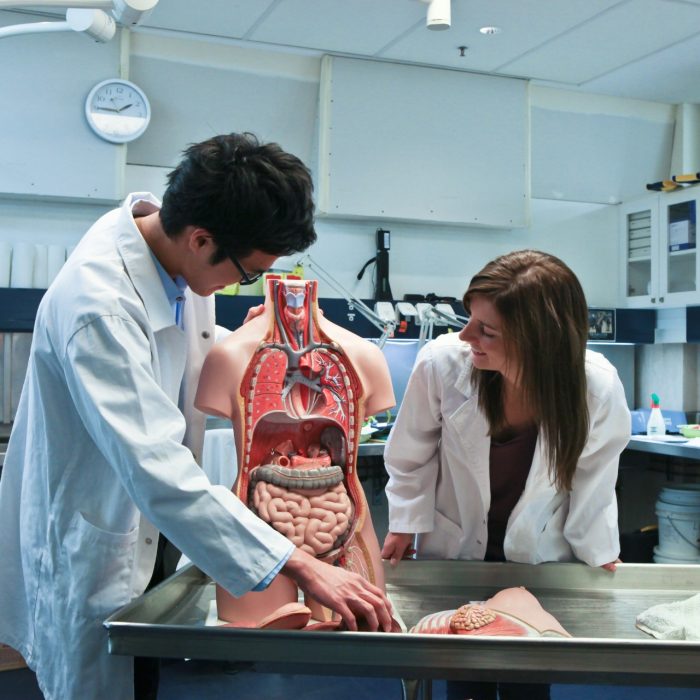Anatomy

Study the structure of the human body
The word ‘anatomy’ comes from the Greek verb 'anatomein', which means ‘cutting up’ or ‘dissection’. However, anatomy today is much more than the descriptive study of the dissected body, although dissected specimens are still used for research and instruction. The study of anatomy now embraces the following disciplines:
- gross anatomy: form, arrangement and function of the bones, joints, muscles and internal organs - including their blood and nerve supply
- histology: microscopic structure of tissues and cells
- embryology: development of the embryo and foetus from conception to birth and mechanisms of development and malformations
- neuroanatomy: internal organisation and functions of the brain and spinal cord
- biological anthropology: applying biological principles and approaches to the study of humans and non-human primates.
In all of our anatomy courses, strong emphasis is given to the functional significance of the structures in health and disease.
Prepare for career success
Careers in anatomy include medical research and allied health therapies, such as massage therapy. You could pursue a career as a forensic anthropologist, medical technician or clinical coder. Studying anatomy can also prepare candidates for careers in medicine and surgery. Anatomy can be combined with units of study from other disciplines such as biochemistry, physiology, microbiology, pathology or psychology to further enhance career options.
Our programs
-
You can study anatomy in the following undergraduate degrees:
-
Gain research experience and enhance your career prospects with an honours degree. These programs are designed to connect your undergraduate study with supervised independent research. An honours degree also provides a pathway into further study, such as a Masters by Research or PhD. You can take honours as a standalone degree or as part of an embedded honours program.
Embedded honours program
Standalone honours program
-
You can study anatomy in the following postgraduate research degrees:
